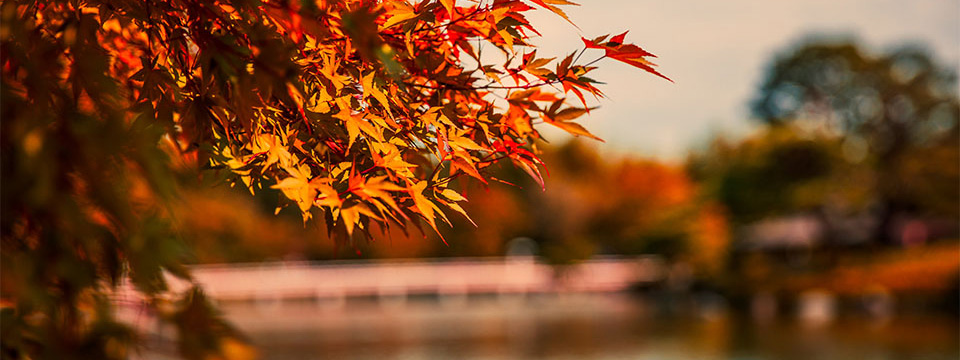Learn Why It's Important to Keep Streets and Stormsewers Free of Leaves

The leaves have been turning vibrant colors and falling from the trees. This colorful display is beautiful, but even though leaves are a part of our environment, they can be very harmful to our lakes and waterbodies if not disposed of correctly.
Leaves contain phosphorus, an essential nutrient for plant growth. As the leaves decompose, they release the phosphorus that was inside the leaf. When it rains, leaves that are on the roadway will be carried by runoff into the stormsewer, which eventually outfalls to a pond, lake, ditch, or wetland. The waterbody is where the phosphorus will be released, causing algal growth and excessive algae blooms. Five bags of leaves are equivalent to one pound of phosphorus, which is capable of producing 1,000 pounds of algae in a lake.
Therefore, leaves should never be raked or blown onto the road or into waterways. Instead of raking or blowing leaves from your property, mulch leaves by running over them with a lawnmower. Leaves and grass clippings are great fertilizers for your lawn. Also, leaves can be raked into a compost pile for a nutrient-rich fertilizer for gardening or plant growth next spring. Some trash collection services also collect yard waste, which is another great place to dispose of leaves.
Please help keep our local waters healthy!

Search Archives
Categories
Posts by Topic
- Staff News (98)
- Architecture (66)
- Funding (61)
- Civil Engineering (53)
- Education (48)
- Architectural Design (38)
- Engineering (37)
- Land Surveying (32)
- Surveying (26)
- Environmental (22)
- Commercial (21)
- Interior Design (18)
- Streets & Highways (17)
- Utilities (17)
- Water Resources Engineering (14)
- Industrial (13)
- Community (11)
- Cultural (11)
- Landscape Architecture (11)
- Sports & Recreation (11)
- Government (10)
- Aerial Mapping (8)
- Mechanical Engineering (8)
- GIS (7)
- Electrical Engineering (6)
- Structural Engineering (6)
- Senior Living (5)
- Transportation Engineering (5)
- Bridges (3)
- Site Design (3)
- Transmission & Distribution (3)
- Healthcare (2)
- Planning (2)
- manufacturing (1)
Recent Posts
-
May 06, 2024



